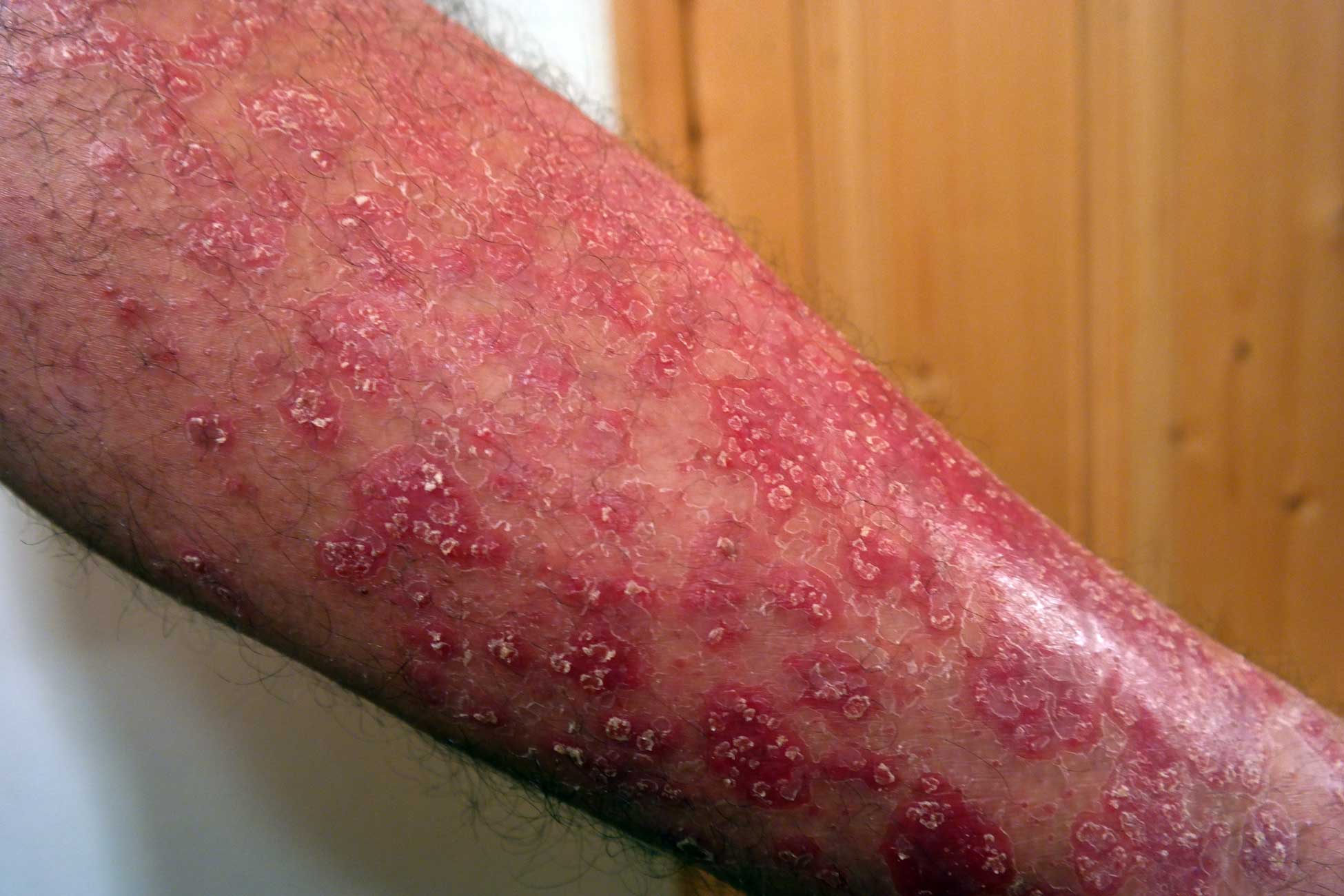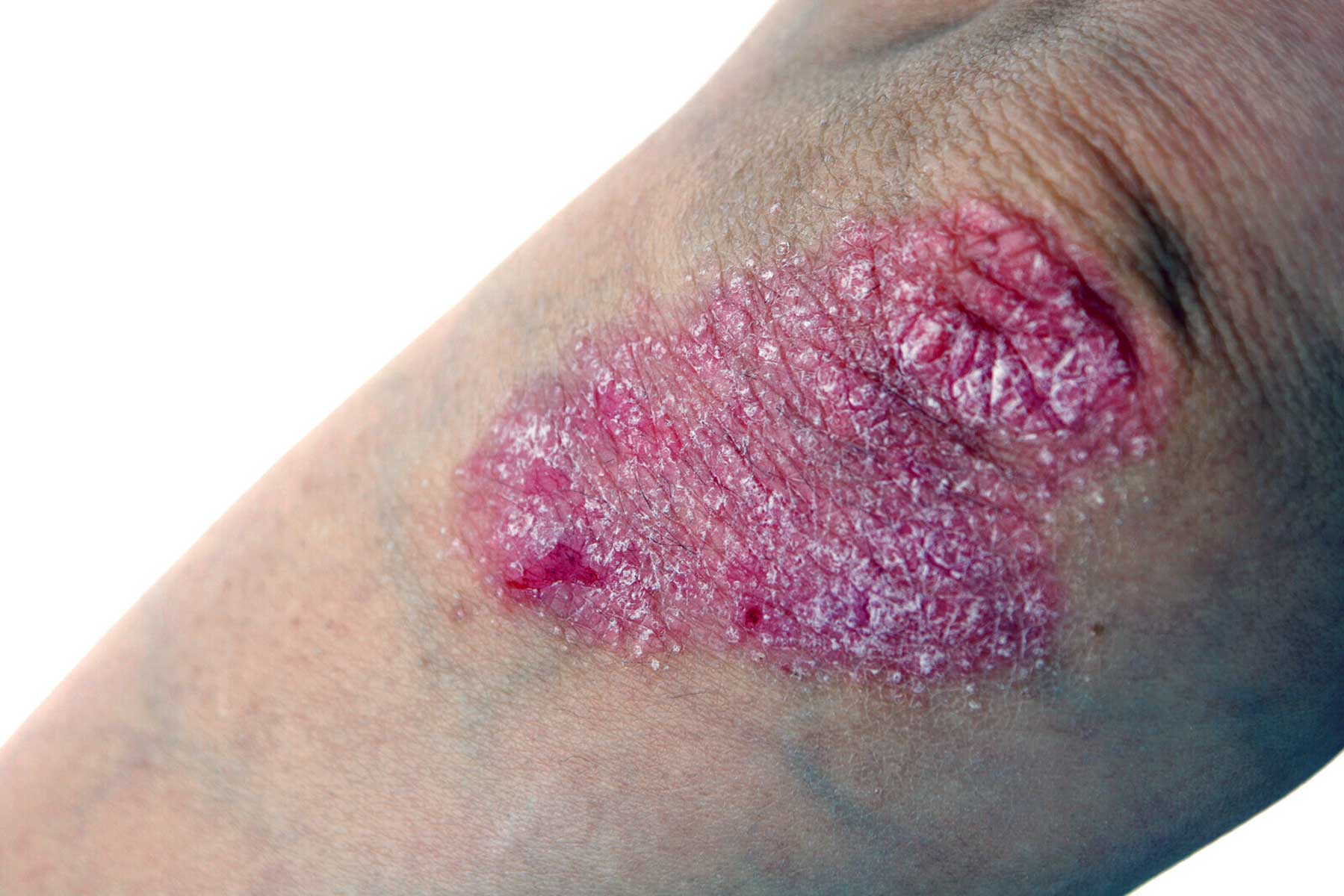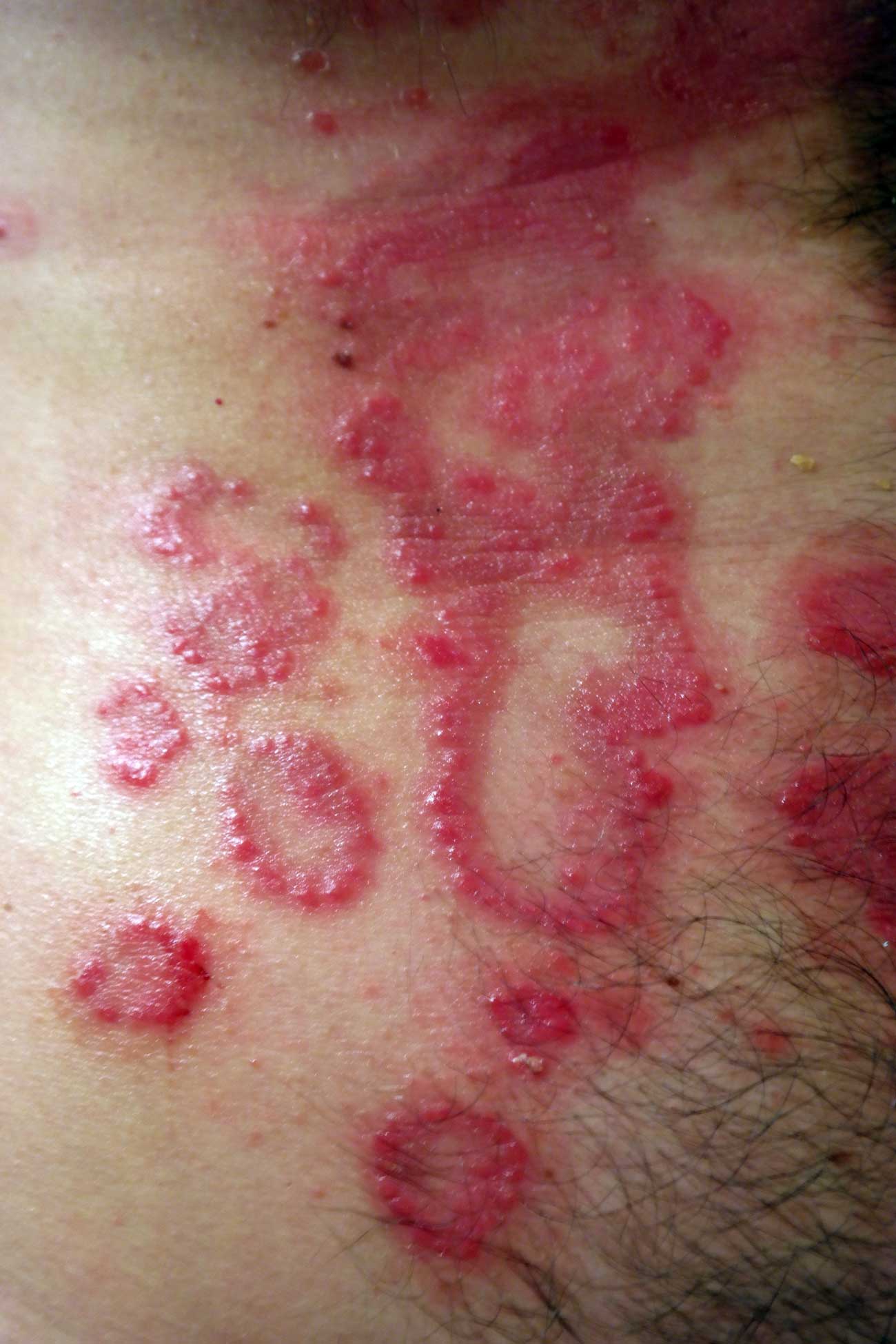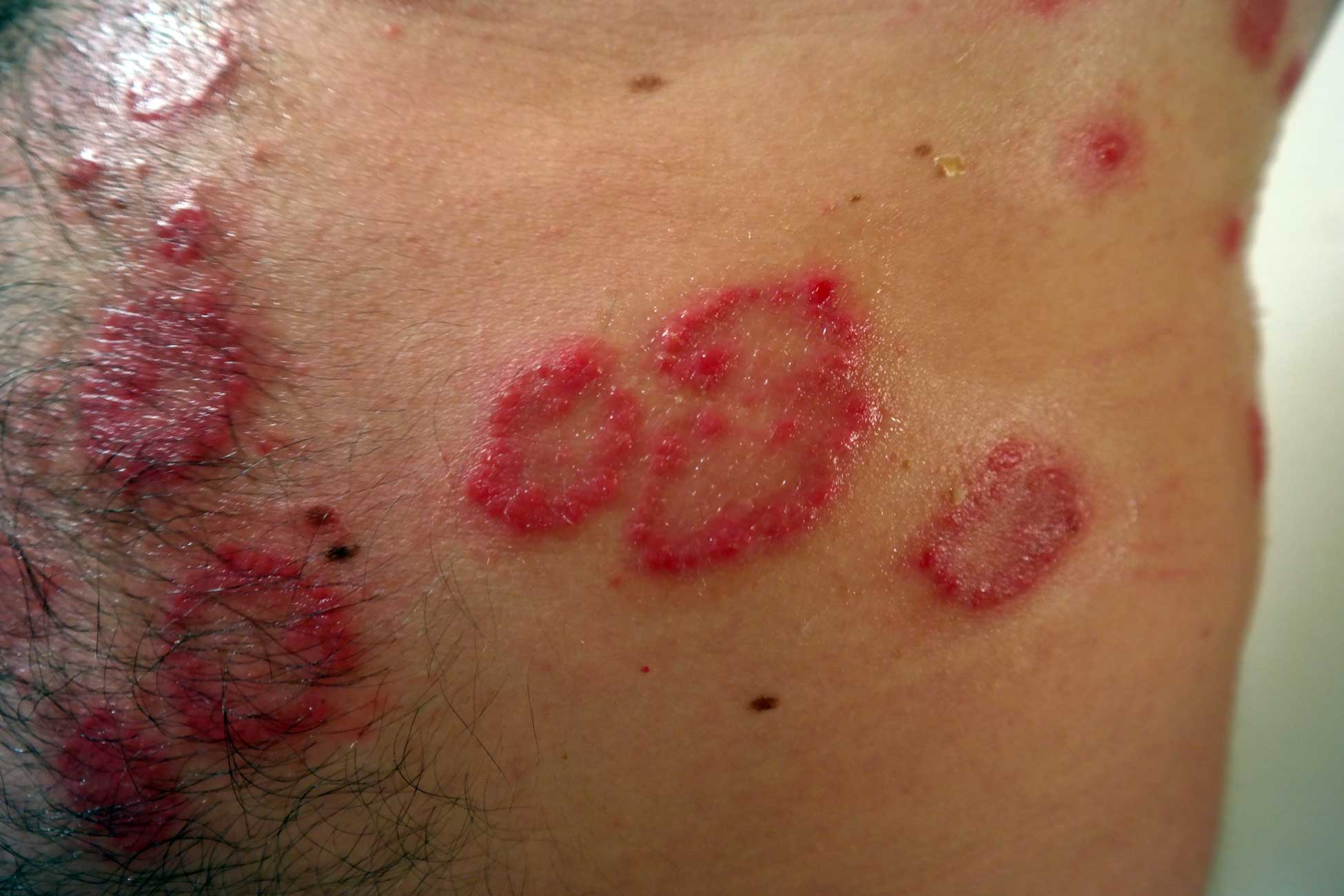Psoriasis - Pictures, Causes, Symptoms, Illustration, Treatment, Skin Rash, Cure, and Types
What is Psoriasis?
Psoriasis is the collective term for different types of skin disorders wherein the life cycle of skin cells speeds up. This means that the skin keeps growing, sometimes up to 10 times faster, resulting in symptoms that typically involve the formation of red, scaly patches on the skin.
Table of Contents
TogglePsoriasis is an auto-immune disease that has no known cause. It is also chronic and has no known cure; however, it is a condition that comes and goes and can be controlled using different types of treatment.
Types of Psoriasis
There are many types of psoriasis. However, they are categorized based on different criteria. Here are the most common kinds of psoriasis that may be encountered. Only a professional dermatologist or physician can properly assess and diagnose what type of psoriasis you may be suffering from.
Psoriasis Vulgaris
Psoriasis Vulgaris, also known as plaque psoriasis, is the most common type of psoriasis and can be found in almost 9 out of 10 cases. This type of condition can affect all parts of the body, even the genitals and inside the mouth.
However, this most commonly appears on the elbows, knees, scalp, or on back. Psoriasis Vulgaris is characterized by dry, red patches with white to silvery rough scales. These are raised and individual lesions can merge together.
These patches, called plaques or lesions, can sometimes crack or bleed and can be very itchy.
Guttate Psoriasis
Guttate psoriasis is basically diagnosed by spotted patches which are typically red or pink in color. Like regular psoriasis, these lesions, or papules, are scaly but are not as raised or itchy.
Guttate psoriasis is more common in children and young adults and usually occurs during bacterial infections such as strep throat or tonsillitis. Guttate psoriasis regularly appears on the torso, but can also appear on the scalp and on your legs and arms.
Inverse Psoriasis
Those suffering from inverse psoriasis suffer from bright red lesions that are shiny and not raised. They are also not scaly and are usually not itchy. Inverse psoriasis typically appears on areas where the skin folds such as in the groin, the armpits, or below the breasts.
Those who are overweight can also have this in the folds of the stomach. Symptoms associated with inverse psoriasis are exacerbated by sweating or by friction.
Pustular Psoriasis
In pustular psoriasis, the extremities are mostly affected. Pustular psoriasis is primarily characterized by small bumps on your hands and feet that are filled with pus, with the surrounding skin being red and tender.
This type of psoriasis is rare and mostly affects adults. However, this type of psoriasis can also be quite serious if not treated as this may lead to more serious conditions such as diarrhea and an increased heart rate.
Erythrodermic Psoriasis
Erythrodermic psoriasis is the least common type of psoriasis, but it is also one of the most severe. Erythrodermic psoriasis is characterized by severe redness and scales all over the body.
This can shed uncontrollably and can itch and burn severely. This type of condition usually appears during an attack of milder types of psoriasis, as well as due to sunburn or infection. Like pustular psoriasis, those suffering from erythrodermic psoriasis must seek medical attention right away in order to prevent more severe conditions such as pneumonia, heart failure, and more serious infections.
Psoriasis of the Scalp
While some types of psoriasis can affect the scalp, some only suffer this condition on this specific part of the body. Like regular psoriasis, scalp psoriasis is a disorder that causes the skin to become red, bumpy, scaly, and itchy. This can further spread to the back of the ears, the nape of the neck, or the forehead.
Scalp psoriasis can result in temporary hair loss due to scaling and scratching. However, hair usually grows back once the sufferer has recovered.
Psoriatic Arthritis
Those suffering from psoriasis may also suffer from psoriatic arthritis. This affects about 30% of individuals who are afflicted with one form of psoriasis or another. Just like regular arthritis, psoriatic arthritis causes inflammation of the joints and connective tissue.
This can affect the back, hips, knees, as well as your fingers and toes. For the latter two, obvious swelling can occur. Psoriatic arthritis most often occurs after the symptoms of psoriasis have fully manifested.
Symptoms and Signs of Psoriasis
Psoriasis is caused by the body’s failure to control the creation of new skin cells. Skin cells in a normal person will shed naturally within a month. For psoriasis sufferers, however, this can happen within just a few days, causing new skin to be moved up without shedding. The body also attacks your skin cells, mistakenly thinking that these are foreign invaders and must be destroyed.
As such, one of the most common signs of psoriasis is the emergence of patches on your skin. These patches are, in the case of most common types of psoriasis, scaly, rough, and pink to red in appearance. The tops of these patches can be very itchy and are typical of a different color than the surrounding skin.
In extreme cases, psoriasis may come in the form of bumps that are filled with pus. These lesions are usually isolated in a specific area of the body but can spread to other parts of the body if left untreated.
Lesions caused by psoriasis are very sensitive and can be painful when touched. Others report a burning sensation even if they leave these lesions alone. Scratching may cause these scales to fall off or bleed, risking further infection from the open wounds.
Those who have rough-looking discolored or pitted nails may also suffer from psoriasis on that specific part of their body.
Treatment of Psoriasis
Some mild cases of psoriasis disappear on their own after a few days or weeks. However, flare-ups do occurs, with the intervals sometimes lasting months or even years. Unfortunately, though, there is no complete and absolute cure for psoriasis. What is currently available are treatments that can help relieve the symptoms of the condition and to make the complications caused by psoriasis more bearable.
The most common type of treatment for mild to moderate types of psoriasis is topical creams. Corticosteroid preparations such as ointments and creams are the most popular products prescribed by dermatologists. This is often used in conjunction with taking Vitamin D supplements, which help in promoting better skin health.
Other topical treatments, although less conventional, include the use of mineral oil, coconut oil, petroleum jelly, and sunscreen on the affected areas. The regular use of moisturizers has also shown to be of great help.
These types of treatment relieve the more common symptoms of psoriasis such as roughness and dryness of the skin. Treatment of up to eight weeks is recommended for topical treatments to show significant results.
For more severe cases of psoriasis, doctors often recommend oral medications or injections. Those who are pregnant or who have blood or liver-related conditions are not recommended to have this type of treatment.
Another popular form of treatment is UV phototherapy, wherein the patient is exposed, in a controlled environment, to UVB rays. This, however, can be difficult for some due to the lack of facilities that cater to such a treatment as well as the improbably yet still very possible risk of the patient contracting melanoma or other types of skin cancer.
There have also been studies on how removing the tonsils can help in preventing psoriasis in the future. This is due to the connection between bacterial infections with the auto-immune responses triggered during psoriasis attacks.
However, some research is being done on the subject. This means that, while many have benefited from this procedure, the results are still inconclusive as of this time from a medical standpoint.
The best book that covers all the ways to cure and heal Psoriasis fast!
The medicine with John O.A. Pagano is revolutionary
Causes and Risk Factors of Psoriasis
The real cause as to why people suffer from psoriasis is not known. However, it is known that both internal and external factors may make you more susceptible to this disease. Listed below are the common causes and risk factors typically associated with psoriasis.
Genetics
It has been widely believed that genetics play a very big part in determining whether a person is at risk of contracting psoriasis during his or her lifetime. For identical twins, the probability of both having the disease if one already has the condition is three times more likely than if they are non-identical. It is also not uncommon for family members to have this condition if a parent also suffers from psoriasis. This proves that, at the very least, the probability of contracting psoriasis is hereditary in nature.
Lifestyle
Aside from hereditary factors, a person’s lifestyle may also affect their susceptibility to psoriasis. Drinking alcohol, smoking, and an unhealthy diet will weaken the immune system, which may cause your body to overreact in the form of psoriasis. In fact, smoking will make you almost nine times more likely to contract the disease. An unhealthy lifestyle will also make treatment of symptoms more difficult.
Hormones
Teenagers and women undergoing menopause are likely to develop psoriasis due to the hormonal changes within their body. For pregnant women, however, psoriasis-related complications may minimize, only to return after the baby has been born. Stress, which causes the body to release certain hormones, have also been known to be psoriasis triggers.
Drugs
In some cases, the use of certain drugs may trigger psoriasis. This can be due to side-effects of the medication, or abnormal response of the body to the drugs administered or consumed.
Medication known to cause psoriasis in some cases includes non-steroidal anti-inflammatory medication, lipid-lowering medications, and anti-malarial medicines as well as those containing calcium channel blockers, beta-blockers, and lithium, among others.
Weather
Changes in weather patterns have some effect and can trigger psoriasis in some instances. Changes in weather can cause undue stress, drying of the skin, as well as excessive sweating which are all factors that can cause or exacerbate attacks.
Vitamin D is needed for healthy skin and immune system, reduced exposure from the sun may also cause psoriasis to appear.
Illnesses and Trauma
There are instances wherein scratching your skin or experiencing wounds, cuts, or scrapes will trigger psoriasis-related episodes. It may also be possible for bacterial episodes to trigger these events. Culprits such as strep throat and tonsillitis are the most common. Sunburn may also trigger psoriasis and worsen its symptoms.
While HIV in itself does not cause psoriasis, having both conditions can be very problematic as breakouts are often worse. Due to a compromised immune system, complications can be particularly deadly as well.
Diagnosis of Psoriasis
The diagnosis of this ailment is fairly easy. Most doctors due to visual verification in order to determine the disease. As psoriasis can often be mistaken for other types of skin disorders such as eczema or fungal infections, sometimes a biopsy is taken for further analysis. However, this is mostly done for confirmatory purposes only and oftentimes visual diagnosis is already enough.
Diet Recommendations for People with Psoriasis
There is no particular diet that can help in curing psoriasis, although a healthy diet can help curb some of the symptoms. In particular, anti-inflammatory foods can help minimize the swelling of the skin. In the case of psoriatic arthritis, this can help keep inflammation and pain at bay.
These foods include fruits and vegetables, ginger, garlic, and fish that are rich in omega-3 fatty acids such as salmon and sardines. Olive oil and nuts can also help improve skin health.
Processed foods, dairy products, and fatty meats are foods that should be avoided. Refined sugars are also known to worsen psoriasis attacks and must not be consumed. It is also particularly important to avoid foods that can cause allergies as your immune system may act up and cause further outbreaks.
It is very important for those susceptible to psoriasis to maintain a healthy lifestyle. Not only should they try to maintain a healthy weight through diet and exercise as obesity has been shown to increase the risk of this condition, but alcohol consumption must also be minimized or eliminated altogether.
A diet rich in antioxidants and low in both fats and carbohydrates is important to maintain a healthy weight as well as to minimize the chances of psoriasis appearing and returning.
Frequently Asked Questions
Is psoriasis contagious?
Fortunately, psoriasis is not a contagious condition. It cannot be transferred through physical contact or through the air. It can, however, spread through your genes. This means that the disease is hereditary and can appear across generations. However, even if you are susceptible to psoriasis due to genes inherited from your parents, it may be possible for you to not experience the condition for as long as external factors do not trigger it.
A person suffering from psoriasis in one specific portion of the body cannot spread it to another section by touching it. However, the condition may spread to other parts of the body and merge together into one big patch if not treated and left to worsen. Sufferers may also experience outbreaks in different sections of the body and in large patches in, particularly severe outbreaks.
What can be mistaken for psoriasis?
Psoriasis, in the eyes of a non-trained professional, can be easily misdiagnosed. This is because there are many skin conditions that can be mistaken for this disease. Conditions such as eczema and fungal infections can be mistaken for psoriasis. You may also mistake dandruff as psoriasis especially if you have an itchy and flaky scalp.
Eczema can be differentiated based on how it looks. Psoriasis caused your skin to be more raised, is more silvery and flaky on top of the bumps. Psoriasis related lesions also tend to sting and burn, while eczema patches are just itchy.
Both of them, however, can appear anywhere, although eczema tends to appear more often on the back of the knees and elbow than anywhere else while psoriasis tends to appear anywhere on the body.
Fungal infections, on the other hand, are transmissible and can spread if not treated properly. Psoriasis tends to appear only in a specific part of the body, but can also spread if not treated and can appear on a separate portion of the sufferer. Psoriasis is also not contagious unlike fungal infections were touching an affected portion can easily spread the infection.
Can psoriasis kill you?
While psoriasis in itself is not life-threatening, complications that may arise from the condition can severely risk your health both in the long and short term. A person afflicted with psoriasis has an overtaxed immune system, which makes them more susceptible to other, more serious diseases and infections.
Sufferers from psoriasis also suffer from inflammation, which may affect arteries which would, in turn, affect their blood pressure. A thicker skin would affect body temperature, as well, putting further stress to the body.
Studies have shown that those with psoriasis that affects more than ten percent of the body are twice more likely to die than those with milder cases. However, it can also be inferred that those with more severe cases of psoriasis have unhealthy lifestyles and would tend to have other underlying health issues to begin with, which would result in a shorter expected life span.
Another thing that can indirectly kill you is the effect of psoriasis on mental health. The lowered self-esteem, the constant feeling of discomfort, and the social stigma can severely affect a person’s self-worth. There have been incidences of suicide as well as other acts of violence which stemmed from this affliction, making psoriasis a very serious disorder that must be dealt with before it does too much damage.
Can psoriasis affect only my nails?
Psoriasis can, in some cases, be isolated in the nails. However, there is no guarantee that it will not eventually spread especially when not treated. Nail psoriasis is typically characterized by pitted, discolored, and thick fingernails that may also be misshapen. Severe psoriasis on the nails can also result in the nail separating from the nail bed.
Treatment for psoriasis on the nails includes topical creams, oral drugs, and phototherapy. Sometimes, the nail would have to be removed completely as well. Those suffering from psoriasis are recommended to take good care of their nails as well as to wear protective garments such as gloves. They should keep their nails trimmed short and moisturized to prevent further damage to their brittle nails.
Is psoriasis fungal or bacterial?
Bacteria and fungi are similar as they are both microscopic and can cause diseases that can severely affect the body if left unchecked. Bacteria, however, are unicellular while fungi are multi-cellular. Bacteria can be killed by antibiotics while fungi can be removed through anti-fungal creams, among other means.
Psoriasis, however, is neither bacterial nor fungal. It is an automatic response by a faulty immune system that reacts through the rapid creation of skin cells that the body cannot shed fast enough. Because of this, psoriasis is difficult to treat completely and the best that can be done is to alleviate the symptoms and discomfort caused by this disorder.
What happens if psoriasis is left untreated?
Some mild cases of psoriasis go away on its own. However, it is recommended that the condition be treated by a professional no matter how mild or severe. If left unchecked, psoriasis can lead to very serious complications that may even lead to death. Due to the constant and severe itching, sufferers may tend to scratch the patches. This would then result in bleeding and infections to the wound.
Psoriasis can also spread to other parts of the body when left untreated, making treatment much more difficult. The discomfort will also increase greatly. Under worse situations, people afflicted with the condition will suffer other conditions such as arthritis, congestive heart failure, high blood pressure, as well as other infections and skin disorders.
As such, it is very important to seek professional help once the signs and symptoms of psoriasis appear.
Source:
We may earn some money from links with the Amazon Affiliate Program.





